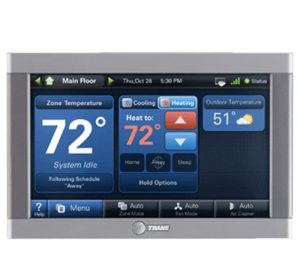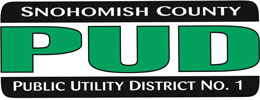Winters in Washington are known around the world for their iconic beauty. From the powdery white snow as you skate at the Sculpture Garden skating rink, to the annual lighting of the National Christmas Tree – there is always something fun to do at the nation’s capital state.
However, winters are not all good. Aside from dark skies and heavy snow, the cold weather can be extremely unpleasant to deal with.
People flock to their homes in order to stay warm indoors during Washington’s harsh, chilly winters. However, people are not the only ones that can struggle to stay warm during the coldest season of the year.
Heat pumps can struggle to work in cold weather if you don’t take the proper precautions to care for them. If you are someone who relies on heat pumps to deal with cold climate in the winter, then this is the perfect read for you.
Find out how heat pumps can work in cold weather, as well as a few precautions you can take to make sure they are in working order for the rest of this chilly holiday season.
What are Heat Pumps?
Heat pumps are a type of heating system that uses natural heat that exists within the proximity of your home or building. Unlike gas or oil boilers which require a fuel source to warm your indoor spaces, heat pumps are more environmentally-friendly and easy to sustain.
That being said, heat pumps work by drawing existing heat from sources like the ground, the air, or bodies of water around your home. This means that heat pumps may face difficulty in drawing heat in during the cold winter months, where nearby sources of heat would have frozen over or cooled down far too much to provide the heat required.
How Do Heat Pumps Work in Cold Weather?
Contrary to popular belief, not all ‘warmth’ completely fades from the surrounding heat sources of your home. Heat pumps can give you more assurance that your heating units can continue to provide warmth without freezing over, as they harness the residual heat in the environment (such as the air and the ground).
This is what sets heat pumps apart from boilers and other heating solutions, which can sometimes rely solely on fuel to generate the heat to warm your home. Here are the secrets as to why heat pumps can continue to function – even in harsh, cold climate.
Higher Electricity for Continued Operation
Did you know that heat pump efficiency is measured in CoP? CoP stands for the Coefficient of Performance. This figure is calculated by comparing the amount of energy input needed to power the output.
Ideally, you want your CoP to be a higher number as this means that your device is more efficient. The higher the CoP of your system, the more you know you are getting your money’s worth.
However, there are times that a lower CoP is unavoidable. In cold winters, a lowered CoP is unavoidable as you need more electricity to heat your home. The positive tradeoff however, is knowing for sure that your heat pump works – even in the winter time.
Pre-Existing Sources
While we mentioned that it may require you to expend more electricity to extract the heat from the ground and outside air and channel it into your homes, using the ambient heat that exists within nature around your home makes it easier for your heat pump to warm your home.
This holds true for whatever the source of your heat pump may be. Below are some common types of heat pumps used in various homes and commercial establishments.
Air Source Heat Pumps
Drawing from the ambient heat in the atmosphere, air source heat pumps absorb heat and run it through a heat exchanger as a fluid, before pumping it into a water system.This in turn heats your floors through a radiator, as well as a hot water cylinder that can supply sinks, showers, and bathtubs.
Ground Source Heat Pumps
Also known as a geothermal heat pump (GHP) or a GeoExchange, these heat pump systems are placed a few feet underground. This is because regardless of the weather and temperature on the surface, the earth’s core and layers stay the same temperature.
Though surface temperatures may still affect the CoP of your ground source heat pump, it is still a dependable and reliable choice even during the unpredictable winters of Washington.
Water Source Heat Pump
This heat pump system needs to be submerged within a pre-existing body of water. Many professionals consider water sources to be slightly more efficient than air or ground sources.
This is because heat travels through water more easily than it does through the air or the ground. The downside of this is that there can be complications if the body of water your water source heat pump is located in freezes over.
Defrost Cycle Option
Though heat pumps can still be operated in the winter, gas-fired furnaces are easier to operate as their systems are indoors. On the other hand, heat pumps are susceptible to freezing over as they are exposed to outside elements.
That being said, most heat pumps come with an option to run a defrost cycle. This should solve most malfunctions if you start to feel cool air instead of warm air coming through your heating.
How Do I Know if Something Is Wrong with My Heat Pump?
Like any heating system, heat pumps can also face challenges during operation in the winter time. Here are a few warning signs to look out for if you feel like something is wrong with your heat pump.
Higher Utility Bills
While a small increase in your electricity bill may be expected as your heat pump works during the winter, a significantly higher bill during the winter months may indicate an underlying issue affecting the efficiency of your heat pump while it warms your space.
Keep an eye on your bills and flag any outliers with your electricity and heat pump provider.
Thick Frost Over Unit
In cases of extreme cold, a heat pump should automatically shut down to prevent further damage from occurring. To keep heat pumps from having to shut down if cold damage occurs, most heat pumps have an internal defrost mechanism to prevent heavy layers of frost from building over them.
However, things are different if you notice that your heat pump is constantly freezing over. This means that the automated defrost system is a) no longer working, or b) insufficient in preventing the frost from building.
Short-Cycling
Heating and cooling systems should have regular cycles that adequately cool or warm a space. However, these cycles are sometimes cut short.
If you find that your heat pump is switching off on its own, this can be a sign that its filters are clogged with ice, snow, or debris. In other cases, you may notice a difference in the thermostat versus the thermometer reading.
Report your findings to your provider and avoid fiddling with any parts if you can to prevent further complications.
Unusual Noises from the Unit
We are all afraid of things that go bump in the night. However, one needs to pay close attention to their HVAC system if they hear strange noises coming from it as you run a heating cycle in the winter.
These noises can come in the form of metal grinding or screeching, internal rattling, or even a grating buzzing noise. Not only are these noises distracting, but they can also indicate a malfunctioning or broken part of the heat pump.
If left unattended, this can be cause for accidents in your own home.
Feeble Air Output
Because of the cold weather in Washington during the winter, lowered efficiency is generally common. But you need to be able to tell the difference between lowered efficiency and hot air that is barely there.
If you find that your heating system is working far too weakly and you cannot figure out why, then this may be cause for concern. Ring up your provider for some troubleshooting over the phone, or schedule an inspection.
Musty Smell from Vents
Any air that is processed by our heat pumps travels through the vents. If you notice an unpleasant, musty smell emanating from your vents, then it may be an indicator that mold has begun to grow within the vents or your air ducts.
This can happen if the interior of your heat pump is damp, which can be caused by condensation as your heat pump draws in ambient heat while dealing with cold exteriors. Some common household mold strains (such as Cladosporium, Aspergillus, or Stachybotrys Atra / Black Mold) are toxic when consumed or inhaled.
If you suspect that your heat pump has begun to grow mold, you should immediately schedule an appointment with your heat pump provider for emergency maintenance.
Leave it to the Experts
Heat pumps are complex fixtures in your home, and attempting to self-diagnose them or take them apart can do more harm than good. Call the professionals for immediate action if you suspect something is seriously wrong with your heat pump.
Our Preferred Member Program will give plenty of options for saving on maintenance and repairs, so you can enroll your household for guaranteed heat pump support that is both reasonable and dependable!
Contact (855) 345-6161 Today
For quick troubleshooting and appointment scheduling in the Mukilteo area, you can count on our trustworthy experts to provide quick support and assistance!







